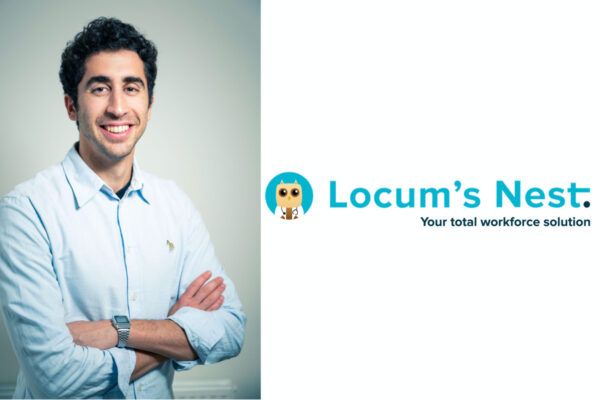COVID-19: An innovator’s perspective

Ahmed Shahrabani, Locum’s Nest (NIA 2020)
This blog was originally published as part of the AHSN Network‘s COVID-19 Lessons blog series on 3 September 2020.
Dr Ahmed Shahrabani is an NHS Innovation Accelerator (NIA) Fellow and the co-founder of Locum’s Nest, a total workforce management system, which he worked closely with Kent Surrey Sussex AHSN to grow. Here he writes about his experience during the COVID-19 pandemic as both an innovator and a doctor who returned to frontline work in.
COVID-19 has led to transformational change across the NHS over the past few months. But this came at a great cost, both in terms of human lives lost and the longer-term adverse effects that we will see in our healthcare system over the coming months, if not years.
However, the national response was incredible from the outset in late-March, and the General Medical Council (GMC) did a phenomenal job at supporting doctors returning to practice. The e-learning modules that were set-up, with a special focus on COVID-19 clinical management (amazing how much these changed over the past three months) were incredibly helpful and former colleagues were equally supportive in providing refresher materials and clinical shadowing placement offers.
However, I found that there was little guidance after that in terms of actually getting back onto the frontline. I received endless emails from outsourced recruitment firms asking for my details – it felt like the whole world knew my address, date of birth, gender, work experience and general life story – but nobody could tell me where help was needed within the system.
Thankfully, I was able to get support on the frontline via the Locum’s Nest Digital Collaborative Bank. A grassroot project founded in 2018 by Ashford & St Peter’s Hospital NHS Foundation Trust (FT) and Royal Surrey NHS FT. The Digital Collaborative Bank now consists of eight NHS Trusts who work together, sharing their workforce as a unit, in response to COVID-19 and beyond. As a first step, I approached North Middlesex University Hospital, which is also a member of the Digital Collaborative Bank, and requested to join their staff bank. Using my Locum’s Nest healthcare digital passport to facilitate my onboarding and within three days, I was a member of the Trust’s contingent workforce! The hospital started communicating with me regularly and I was on the wards a few days later after completing some additional refresher training sessions (e.g. COVID-19 critically unwell patient management guidance).[rd_line type=”rd_line_bold” color=”#c9f0ff” use_icon=”yes” icon_color=”#c9f0ff” icon_size=”75″ icon=”imf-quotes-left”]
We had to leave our silos to ensure learnings and resources were shared so we could survive and ensure our patients received the best care possible.
[rd_line type=”rd_line_bold” color=”#c9f0ff” use_icon=”yes” icon_color=”#c9f0ff” icon_size=”75″ icon_pos=”right” icon=”imf-quotes-right”]The collaboration and partnership used to develop the Collaborative Bank was seen across the system, as the NHS, independent sector and government joined together to drive innovation forward during the pandemic. This key lesson was reinforced to me over and over again during the past few months. We had to leave our silos to ensure learnings and resources were shared so we could survive and ensure our patients received the best care possible. As the virus passed through the region, different Trusts were affected at different levels – one week the Royal Surrey NHS FT had mass admissions of COVID-19 patients and the next Ashford & St Peter’s Hospital NHS FT did. What was incredible was to see how doctors in the region cross-covered each other across Trusts, ensuring that the wards were safely staffed throughout the pandemic to-date.
Wearing my Locum’s Nest innovator hat, I can proudly say that in May we saw a record-breaking 91% of all gaps in the rota filled via the collaborative bank, ensuring that next to no shifts remained unfilled across the eight NHS Trusts involved.
It’s wonderful to see that this collective way of working is being rapidly adopted across the NHS and supported by the NHS Chief People Officer and the Secretary of State for Health. The fear of ‘losing’ doctors and the feeling that Trusts need to compete with one another, operating in silos, is being thrown out the window by the brave Trust leaders who are supporting each other. As Matt Hancock said at the RCP for the launch of the NHS People Plan “We work better when we work together”. I hope this way of working and culture continues and spreads as, frankly, the only way that we are going to defeat this virus and a potential second surge is if we start to work together across the entire healthcare system.
Visit Locum’s Nest and follow @LocumsNest and @AhmedShahrabani to find out more.